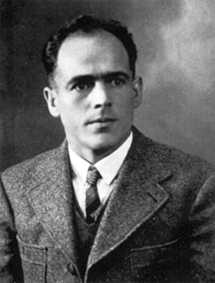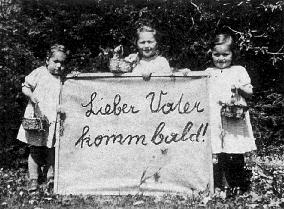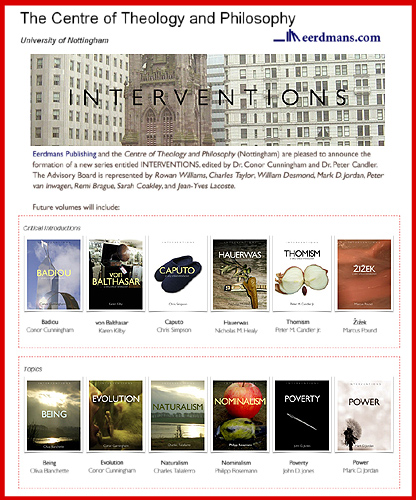Radical Preaching
Can preaching again have something to say?
This blog marks the attempt to bring the theological vision of Radical Orthodoxy into the worship and preaching of the local church.
Sunday, August 27, 2006
Thursday, August 24, 2006
Monday, August 14, 2006
Pigs in Church
One of Nashville's most peculiar charismatic preachers hosted a most unusual service yesterday. The title of the sermon was "Mascots." You can read a full account of the service here.
Cash rewards were given to any student who could catch a chicken or a pig. Evidently, the pigs really made a mess, depositing little loads across the front of the church. Later, cheerleaders tumbled down the aisles and led cheers. Two mascots came out on the platform. The sermon had absolutely nothing to do with the spectacle but was a "hook" to get "nonbelievers" to come to church.
You just can't make things like this up...
Cornerstone Church
Pastor Maury Davis
Friday, August 11, 2006
Poignant Account of the War in Iraq
Last night, I went to see the new documentary on the Iraq War, The War Tapes. This documentary is unbelievable. I would encourage everyone to see it. To summarize briefly, Filmmaker Deborah Scranton gave video cameras to three national guardsman who were deployed to the Sunni Triangle in 2004. The soldiers tell the story of the war first hand, giving a view into the stress and rage that comes with combat duty. The movie gives the war the human face we have been denied by the Pentagon and the media. We actually see the carnage, the suffering, the griping, and the anger. Below are some questions that the film raised for me.
1) Stanley Hauerwas proves prophetic once again...
The soldiers are united in their disdain for Halliburton and her nebulous array of subsidiary companies. As the soldiers remark, Halliburton runs everything. They daily risk their lives to escort the supply trucks. In Resident Aliens, Hauerwas quips that serving the US is like dying for the phone company. In Iraq, it is not Ma Bell but Halliburton. This raises interesting questions about the effects of global capitalism on the nation-state. In one powerful scene, Michael Moriarty, who is unwavering in his support for the war and for President Bush, is enraged with Halliburton after an IED detonates injuring a driver. He shows another truck, driven by a Third World National. The truck has no windows, no armor, no protective devices. It was issued this way. In short, the third world nationals are expendable, too cheap to warrant protective armor.
2) The need to speak the truth and offer forgiveness and prayer.
Consider this quote:
"Every once in awhile as we’re driving down the road or creeping along a patrol, I have a reoccurring epiphany – this is happening and will have a lasting impact on me for the rest of my life.The young men and women (and their families) will be significantly affected by the war. Even while we continue to speak the truth, call for justice and peace, and avoid idolatry of the nation state, how do we offer the peace and joy of the Eucharist to those returning from Iraq and Afghanistan? Too often, we pat them on the back, thank them for their service, and then move on with our lives, with little patience for their transition back to civilian life. Are we a body capable of taking in those who are deeply wounded by what they have seen and experienced in combat?
A debate we had earlier in the day over the consistency and texture of a severed limbwas not some far off grotesque assumption. It was a genuine argument between the guy who swears it resembles hamburger, ground up but uncooked and the guy who believes it looks more like a raw pot roast. There is no argument, however, that human intestines are pink pork sausage links, if of course you imagine a butcher’s block as the background instead of the screaming then soon quietly moaning casualty."
3) Can we avoid dehumanization?
In the film, Bazzi makes coments about how soldiers have to dehumanize their enemies. The American soldiers refer to the Iraqis as Hajis. I am sure that the insurgents have a name for Americans. This film provides a human face to the war, and as we are drawn into the stories of teh soldiers, I was caught by how all of these young men are about the same age. Just as the American families mourn the loss of their sons and daughters, husbands and wives, so too do the families of the insurgents. Even in the U.S., there is a powerful tendency to dehumanize one another as liberals or conservatives.
As Christians committed to pacifism as an outworking of Christian discipleship (see Yoder), we must avoid the pitfall of a liberal account of pacifism, whereby we become opposed to the war to the extent that we dehumanize the soldiers and their families.
I am still processing much of this movie, and I really would like to see it again. I would be interested to hear your thoughts and comments.
Wednesday, August 09, 2006
Prayer and Franz Jägerstätter
 On August 9, 1943, Franz Jägerstätter was beheaded by Nazis for his refusal of military service. As a young man, he was quite wild, but he eventually returned to the Catholic faith. He served his local parish faithfully and received the Eucharist daily. When the NAzi takeover of Austria began, he was deeply opposed to National Socialism. In his local village, he cast the only vote against unification with Germany. When he was called to service, he reported but then refused to serve in the military. He was arrested and later executed for sedition. Prior to his arrest, he would respond to the salute of "Heil Hitler" with "Pfui Hitler!"
On August 9, 1943, Franz Jägerstätter was beheaded by Nazis for his refusal of military service. As a young man, he was quite wild, but he eventually returned to the Catholic faith. He served his local parish faithfully and received the Eucharist daily. When the NAzi takeover of Austria began, he was deeply opposed to National Socialism. In his local village, he cast the only vote against unification with Germany. When he was called to service, he reported but then refused to serve in the military. He was arrested and later executed for sedition. Prior to his arrest, he would respond to the salute of "Heil Hitler" with "Pfui Hitler!"I want to close with his closing reflection on prayer, as it seems so appropriate for our day and time:
"Just as the man who thinks only of this world does everything possible to make life here easier and better, so must we, too, who believe in the eternal Kingdom, risk everything in order to receive a great reward there. Just as those who believe in National Socialism tell themselves that their struggle is for survival, so must we, too, convince ourselves that our struggle is for the eternal Kingdom. But with this difference: we need no rifles or pistols for our battle, but instead, spiritual weapons--and the foremost among these is prayer.... Through prayer, we continually implore new grace from God, since without God's help and grace it would be impossible for us to preserve the Faith and be true to His commandments...."The picture below was taken by his three daughters and sent to him shortly before he was martyred. It reads, "Dear Father, come soon."

Wednesday, August 02, 2006
the church and postmodern culture: the conversation
 My friends James K. A. Smith and Geoff Holsclaw have put together a site called the church and postmodern culture: conversation. This site is a place where conversation will be geared initially around Jamie Smith's new book series by the same name, but will go beyond this as well. The site is also backed by Baker Academic, which is a pretty slick backing to have.
My friends James K. A. Smith and Geoff Holsclaw have put together a site called the church and postmodern culture: conversation. This site is a place where conversation will be geared initially around Jamie Smith's new book series by the same name, but will go beyond this as well. The site is also backed by Baker Academic, which is a pretty slick backing to have.Initially, Jamie Smith has invited theologians, philosophers, and a whole host of others to comment on his first book in the series. The other books slated in the series are: a book by Merold Westphal on transcendence, community, and interpretation in conversation with Kierkegaard and Levinas; a book by Graham Ward on contextual theology and political discipleship; a book by Bruce Ellis Benson on improvisation as a paradigm for thinking about worship and the arts; and a book by John Caputo that asks, "What would Jesus Deconstruct?" With the release of each of these books, new responses will be posted by folks of myriad theological, philosophical, and political sympathies.
For more on the general mission of the book series, here is the series preface:
Current discussions in the church--from emergent "postmodern" congregations to mainline "missional" congregations--are increasingly grappling with philosophical and theoretical questions related to postmodernity. In fact, it could be argued that developments in postmodern theory (especially questions of "post-foundationalist" epistemologies) have contributed to the breakdown of former barriers between evangelical, mainline, and Catholic faith communities. Postliberalism--a related "effect" of postmodernism--has engendered a new, confessional ecumenism wherein we find non-denominational evangelical congregations, mainline Protest churches, and Catholic parishes all wrestling with the challenges of postmodernism and drawing on the culture of postmodernity as an opportunity for re-thinking the shape of our churches.
This context presents an exciting opportunity for contemporary philosophy and critical theory to “hit the ground,” so to speak, by allowing high-level work in postmodern theory to serve the church’s practice--including all of the kinds of congregations and communions noted above. As such, the goal of this series is to bring together high-profile theorists in continental philosophy and contemporary theology writing for a broader, less-specialist audience that is interested in the impact of postmodern theory for the faith and practice of the church. Each book in the series will, from different angles and with different questions, undertake to answer questions such as: What does postmodern theory have to say about the shape of the church? How should concrete, in-the-pew and on-the-ground religious practices be impacted by postmodernism? What should the church look like in postmodernity? What has Paris to do with Jerusalem?
The series is ecumenical not only with respect to its ecclesial destinations, but also with respect to the facets of continental philosophy and theory that are represented. A wide variety of theoretical commitments will be included, ranging from deconstruction to Radical Orthodoxy, and including voices from Badiou to Žižek and the usual suspects in between (Nietzsche, Heidegger, Levinas, Derrida, Foucault, Irigaray, Rorty, and others). And insofar as postmodernism occasions a retrieval of ancient sources, these contemporary sources will be brought into dialogue with Augustine, Irenaeus, Aquinas, and other resources. Drawing on the wisdom of established scholars in the field, the series will provide accessible introductions to postmodern thought with the specific aim of exploring its impact upon ecclesial practice. The books are offered, we might say, as French lessons for the church.
Needless to say (but I'll say it! -- what's with these weird turns of phrase?), I'm really excited about this book series and especially this website which will act as a logical extension of it. Stay tuned to the site over the next few months for the discussion -- and remember, they want you to chime in. Speaking of, Dale Lature has already been chiming in on Jamie's first book in the series. Those posts are listed here.

